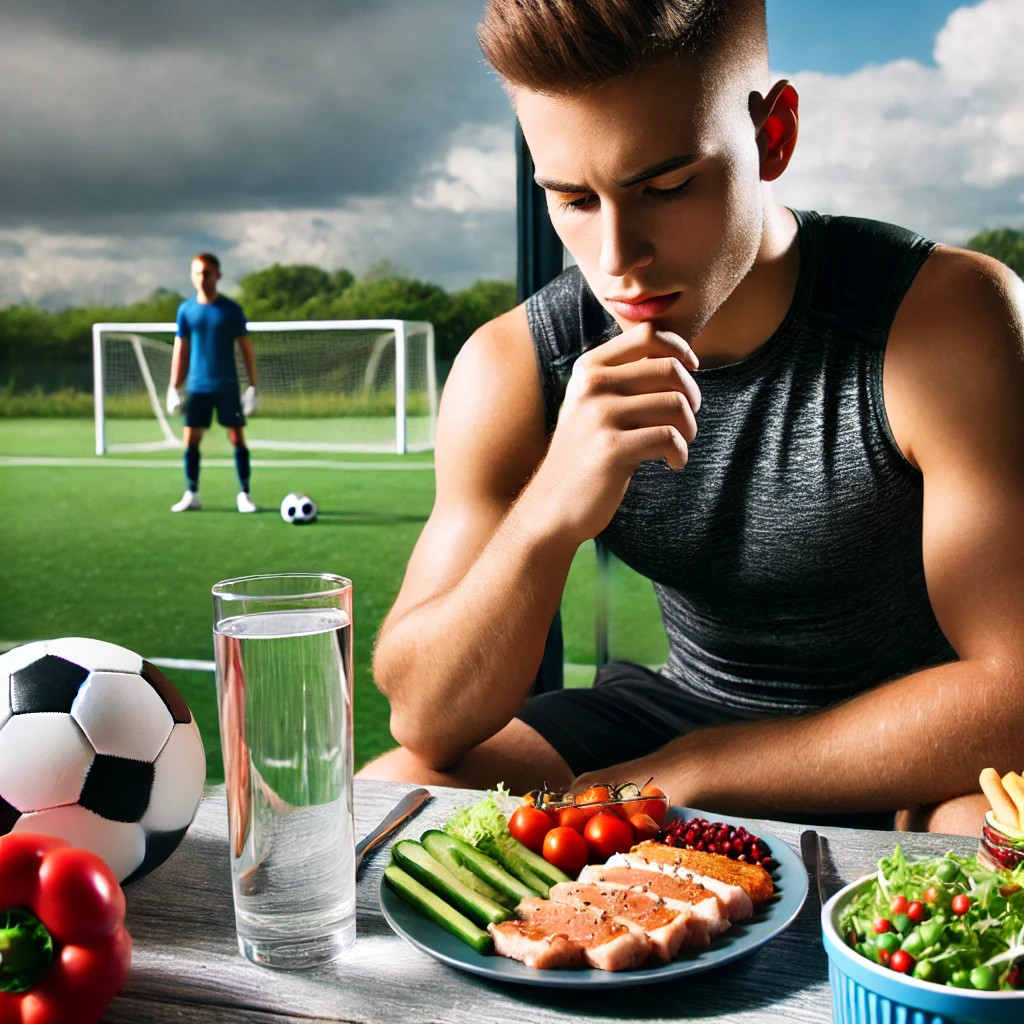
Diet, Nutrition, and Hydration for Optimum Performance
Why Diet and Nutrition Matter
Many young players don’t think much about what they eat. Meals are often whatever’s convenient or what’s prepared for them. However, if you’re serious about becoming a professional footballer, it’s time to start thinking differently. Your body is like a finely-tuned machine, and just like a car needs fuel, your body needs the right food. But not all foods are created equal when it comes to performance.
Avoiding Highly Processed Foods
The first step to improving your diet is staying away from highly processed foods. Processed foods, including fast food like pizzas, burgers, chips, and most ready meals, are packed with saturated fats, refined sugars, and high levels of salt. While these foods might taste good, they offer little in terms of nutrition. Even worse, they can make you gain weight, slow down your performance, and negatively impact your overall health.
Instead of reaching for sugary cereals, chocolate bars, crisps, and fizzy drinks, make smarter choices. Opt for meals that provide your body with the right nutrients it needs to recover, build muscle, and perform at its best.
Choosing the Right Fuel
Focus on eating whole, unprocessed foods that are high in nutrients. Lean proteins, whole grains, fruits, and vegetables should be the core of your diet. These foods help build muscle, maintain energy levels, and support overall performance on the pitch. Hydration is equally important, so make sure you’re drinking plenty of water throughout the day, especially before and after training sessions.
By prioritising your nutrition now, you’ll give yourself the best chance of reaching your footballing goals. Remember, top athletes fuel their bodies with the right foods—so should you.
Latest Blogs
vWhy Alcohol Is Best Avoided: A Footballer’s Guide to Peak PerformanceWhat Happens at a UK Football Trial & What Happens Next?
Are Football Trials Free?
Different Passing Techniques in Football – A Pro Coach’s Guide to Mastering the Basics
How to Impress Your Football Coach – 5 Key Tips from a Premier League Professional
Categories
Tags
News Goalkeeper Trial Ukfootballtrials Soccer Soccer Trials Burnley Bfs George Mcmahon Ashton Football Trials Travel Advice Money Saving Tips Hotels Football Tickets Flights Car Rentals Insurance Football Kit Physical Conditioning Core Strength Football Drills Football Skills Football Tips Brazil Winger Scouted Torquay United Tufc Torquay Mateus Ukfootballtrials Ukft Trial Soccer Soccer Trials Uktrails Portugal Kevinandrade Kevin Andrade Southampton Shadowsquad Academy Football Trials Football Ukft Ukfootballtrials Soccer Tri Aides Pierce Aidenpierce Trial Football Trials Sheffield United Sheffutd Sheffu Blades Barney Askwith Watford Wfc Epl Premier League Premier League Trials Ukft Ukfootballtrials Seico Camara Afcdarwen Drawn Ukfootballtrials Trials Ukft Trials Scouts Robbie Robbielanglends Langlands Aged 13 Goalkeeper Trial Gk Football Footballtrials Ukft Footballschools Ukfs Ukfootballscho Raydin Bigoude Aged 22 Afc Darwen Ukft Ukfootballtrials Tedgibbons Sheffield United Ukfootballtrials Ukft Success Story Trials Soccercamps Sheffutd Callum James Media Executive Media Ukft Ukfootballtrials Austinsmart Wolves Wwfc Wfc Wolverhamptonwanderers Pl Epl Premierleague Ukft Footballtrials Ukfootballtrials Terryboland Ukft Ukfootballtrials Soccertrials Camps Soccercamps Footballtrials Soccer Football Trails Scouts How To Be Scouted What Do Scouts Look For Daniel Jebbison Uk Football Trials Premier League Youngest Scorer Sheffield United UK Football Trials Ltd Attitude Attitude towards football Behaviour Football Nutrition Tips Football in the UK Advice Best Tips to become a pro Pro tips on being a professional Footballer how to get football trials for free football trials for free are football club trials free free football trial UK What Happens at a UK Football Trial? Uk Football trials what happens? How to train for football Why Alcohol is Best AvoidedMost Popular Blogs
6 Things Scouts Look For At A Football TrialTravelling To UK Football Trials or a 5 Day Camp? Here’s Our Handy Guide!
How much do UK Football trials cost?
Bookings Manager Joins UK Football Trials
Barney Askwith - Aged 15 - Trial for Premier League Academy Watford FC




